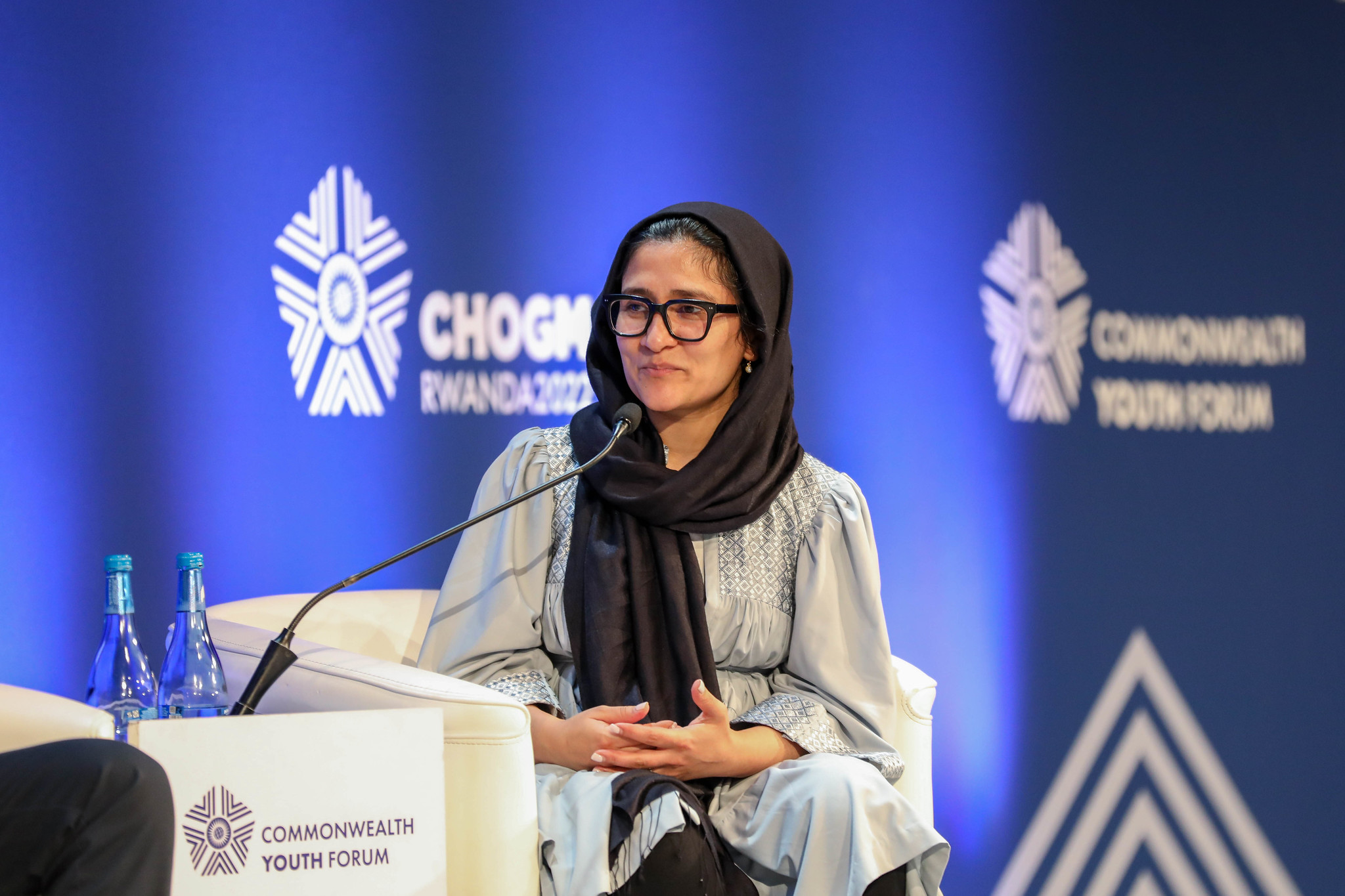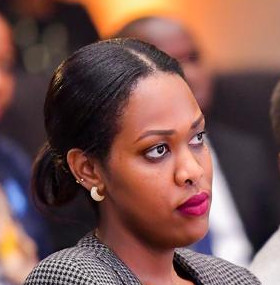

About 20 years ago when the first Taliban regime was in power, Shabana Basij-Rasikh, an Afghan educator, humanitarian, and women's rights champion, was lucky to be brought up by parents who valued education at a time when it was illegal.
Having a father who was a General in the army and a mother who was an educator her entire life, Basij-Rasikh and her siblings were encouraged to study with the purpose of serving.
"I was brought up in a household where we knew that the greater risk in our lives was not getting education as opposed to getting killed,” she noted during a side event of the Commonwealth Youth Forum in Kigali, on June 20.
After completing her undergraduate studies in the United States, she set out to start the School of Leadership Afghanistan, or SOLA, an all-girls boarding school in Kabul, Afghanistan.
It was the first boarding school for girls in Afghanistan.
Basij-Rasikh started SOLA as a way to feel less guilty about her own luck and make sure that more youth, especially young women in Afghanistan have similar opportunities.
She explained that SOLA, which means peace in Pashto – a member of the southeastern Iranian branch of Indo-Iranian languages spoken in Afghanistan, Pakistan and Iran – began in 2008 with four students and a rented house.
The school is now recognized by Afghanistan’s education ministry. It has close to 100 students and nearly three dozen staff.
Initially, SOLA started as a scholarship program where Afghan youth would be identified and facilitated to access qualified education and, later on, go back to their home country as highly skilled Afghans in whichever profession they chose.
"When the US announced that they were to withdraw their troops in Afghanistan by 2014, it created a lot of anxiety among young Afghans who were in the West hoping to return to the country.”
In 2011, the organization started re-evaluating what they were doing, she said.
"Are we becoming a vehicle through which the best and brightest of Afghanistan leave the country for outside opportunities? Are we hurting Afghanistan through this?”
These questions contributed to the shift from a scholarship-based program to an organization that brought quality education to Afghan students in their country and SOLA became the only girls’ boarding school.
"That gave us even more opportunities for innovation in that space. Creating a physical and safe nurturing learning environment in Kabul that allowed us to draw students from some of the most remote areas,” Basij-Rasikh noted.
The organization focused on enabling girls from rural communities across the country who couldn’t go beyond the sixth grade or girls from highly insecure areas that were constantly contested between the government and Taliban insurgency back then.
Then in 2021, the US government announced an unconditional withdrawal of its troops.
"It made a point to re-evaluate our responsibility towards the SOLA students, family, and staff and we knew that it was going to be increasingly irresponsible to operate as the only girls’ boarding school given the increased insecurity and unpredictability of [the] political situation in the country,” she said.
From there, Basij-Rasikh said, they were looking for opportunities to conduct a year-long study abroad program, mostly in neighbouring countries, for the community until they figured out what happens politically in Afghanistan.
"Out of the blue, Rwanda became a possibility and quite fortunately we were quickly welcomed,” she said.
"When Kabul fell under the control of the Taliban, we managed within a few days to evacuate our entire school community and we safely landed in Rwanda on August 25, 2021 and, four days later, we resumed classes.”
Creating a conducive learning environment
In her efforts to create a conducive and student-centered education system, she reached out to artistes to come onboard the teaching platform. This instilled a strong love for arts in all students to the point that they used art as therapy.
"We have been through a difficult journey of evacuation. We gave our students basic art supplies and they started painting and drawing just as a way of going through therapy here,” she disclosed.
In a country where they were told to hide and cover, not to speak or laugh loudly, "we would, essentially, encourage them to do the opposite” including things such as yoga and exercise.
"They [students] would be so embarrassed in the first few weeks. But one month later, they ask us to play music while they do yoga.”
Besides that, the young girls do field visits to acquire hands-on training in various fields from different firms in Rwanda.
"Years of research show that if you want to eradicate poverty, and address health or climate crises, we need to get girls in classrooms as soon as possible because we need their help,” she concluded.
Briefly, Basij-Rasikh describes her journey as a sum of "incredible unpredictability, lack, and incredible amount of fulfillment.”


